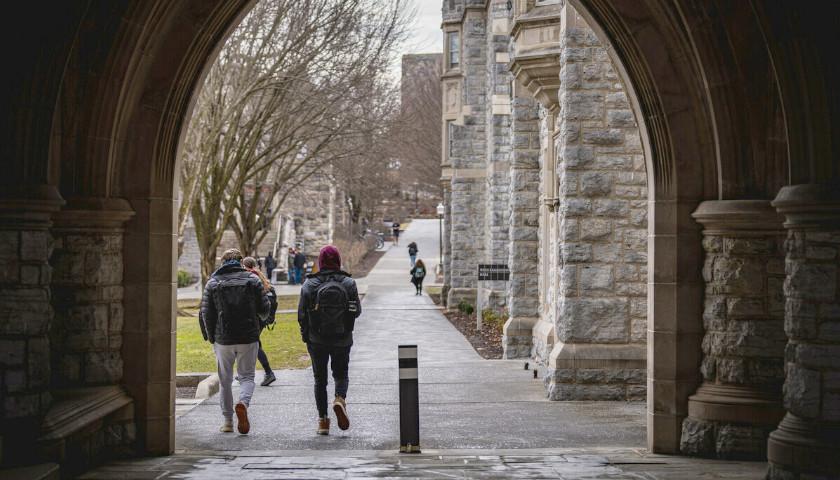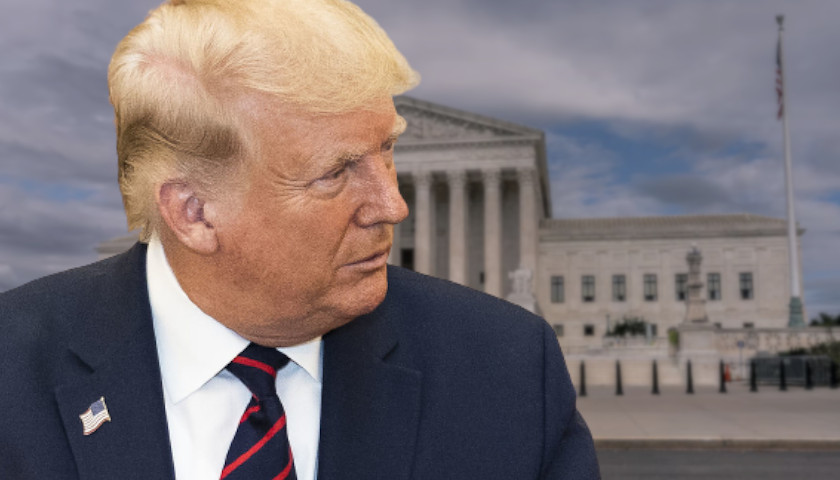by Blake Mauro
A recent federal court ruling siding with Virginia Tech’s bias response team has prompted center-right watchdogs to call for the U.S. Supreme Court to take up the case to protect free speech in higher education.
The controversy centers on a 2021 complaint from Speech First, a nonprofit committed to safeguarding freedom of speech on college campuses, which argued Virginia Tech’s Bias Intervention and Response Team policies and procedures infringe on students’ ability to speak freely about controversial issues.
Plaintiffs included conservative students who “censor what they say, hide their views on social or political issues, and avoid speaking up in the classroom because they know they can be reported by their peers to the University’s Bias Incident Response Team,” according to Speech First.
Cherise Trump, Speech First’s executive director, said she is not opposed to taking her fight to the top of the justice system.
“We agree the case is incredibly important and are weighing all our options, including petitioning the U.S. Supreme Court to take the case,” Trump recently told The College Fix in an email.
On May 31, the Fourth Circuit Court of Appeals in Richmond, Virginia, delivered a 2-1 decision that ruled in the college’s favor, stating in part “the First Amendment does not stand in the way of modest efforts to encourage civility on college campuses.
“…Although Virginia Tech clearly would prefer that its students engage in respectful discourse, the district court found no evidence that the University sought to pursue this goal through intimidation or threats.”
But Reagan-appointed U.S. Circuit Judge J. Harvie Wilkinson III authored a 38-page dissenting opinion against the Bias Intervention and Response Team, or BIRT, heavily criticizing the majority’s rationale and arguing under the public institution’s policy “almost anything could be framed as a bias incident.”
“It takes courage to express unpopular or ‘incorrect’ views, even under the very best of circumstances. Pile BIRT on top of all this, and students with pro-life, anti-affirmative action, restrictive immigration views and traditional religious beliefs have been made conspicuous targets,” the judge wrote.
“Sometimes, people at the University do not even try to hide their hostility toward conservative students who hold dissenting values. When students filed this current lawsuit, a Virginia Tech tenured professor took to Twitter to publicly call the students ‘conservative s—tbags’ who were ‘suing the school because they’re bigots.’”
Wilkinson also argued that “BIRT’s own self-description lays bare Virginia Tech’s persistent efforts to impose a bureaucratic superstructure that dampens speech.”
“Because the majority glosses over the policy’s practical consequences, it is important to lay it out from beginning to end exactly as it is presented to students,” the judge wrote. “Once the full policy is exposed, stripped of fig-leaf assurances, its oppressive nature has nowhere to hide.”
The authors behind The Wall Street Journal editorial board recently pushed for the case to be decided by the U.S. Supreme Court.
“The constitutional question deserves to be heard by the Supreme Court on the free speech merits; other circuits have taken the view that Judge Wilkinson does in dissent,” the editorial stated. “Virginia Tech needs a legal intervention that sets an example for campus censors nationwide, and the majority on the Fourth Circuit panel needs a First Amendment tutorial from the Justices.”
In a recent Wall Street Journal podcast, venerable columnist Kim Strassel said she could not believe the decision, calling the court’s ruling “quite remarkable.” She equated Virginia Tech’s BIRT policy to a “Big Brother operation.”
In the same podcast, WSJ editorial board member Mene Ukueberuwa called Judge Wilkinson’s dissent “extremely artful.” He noted that with its policies, Virginia Tech creates “a hostile environment for any student who runs afoul of some of these speech codes. By creating these rules which are theoretically supposed to make a safer and more inclusive campus, they’re actually making a much more threatening one.”
– – –
College Fix contributor Blake Mauro is a student at Clemson University pursuing a major in political science and minors in journalism and legal theory. She is an intern at FOX News, editor-in-chief at Clemson’s student-run newspaper, and a contributor to Lone Conservative.
Photo “Virginia Tech Campus” by Virginia Tech.





